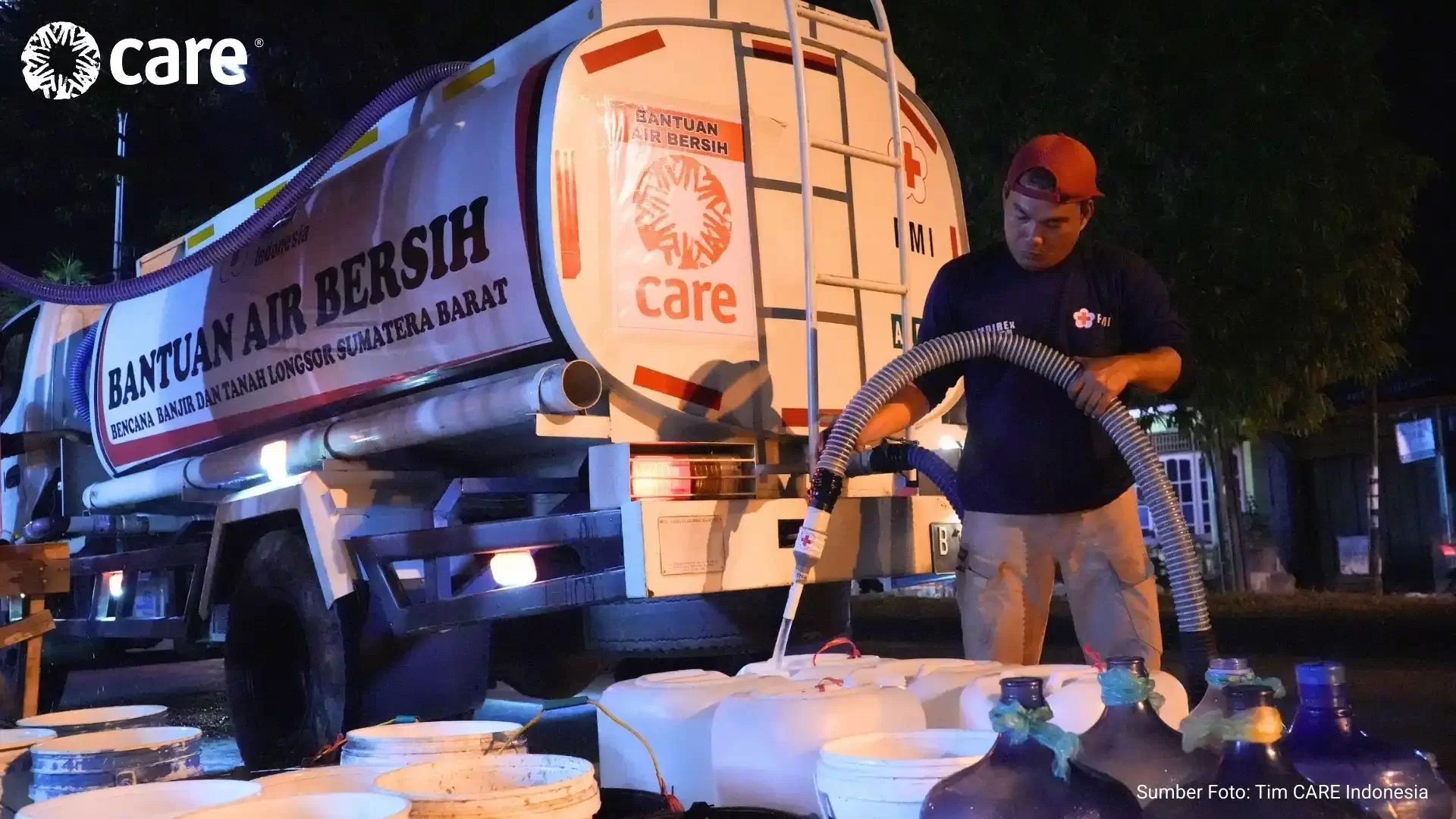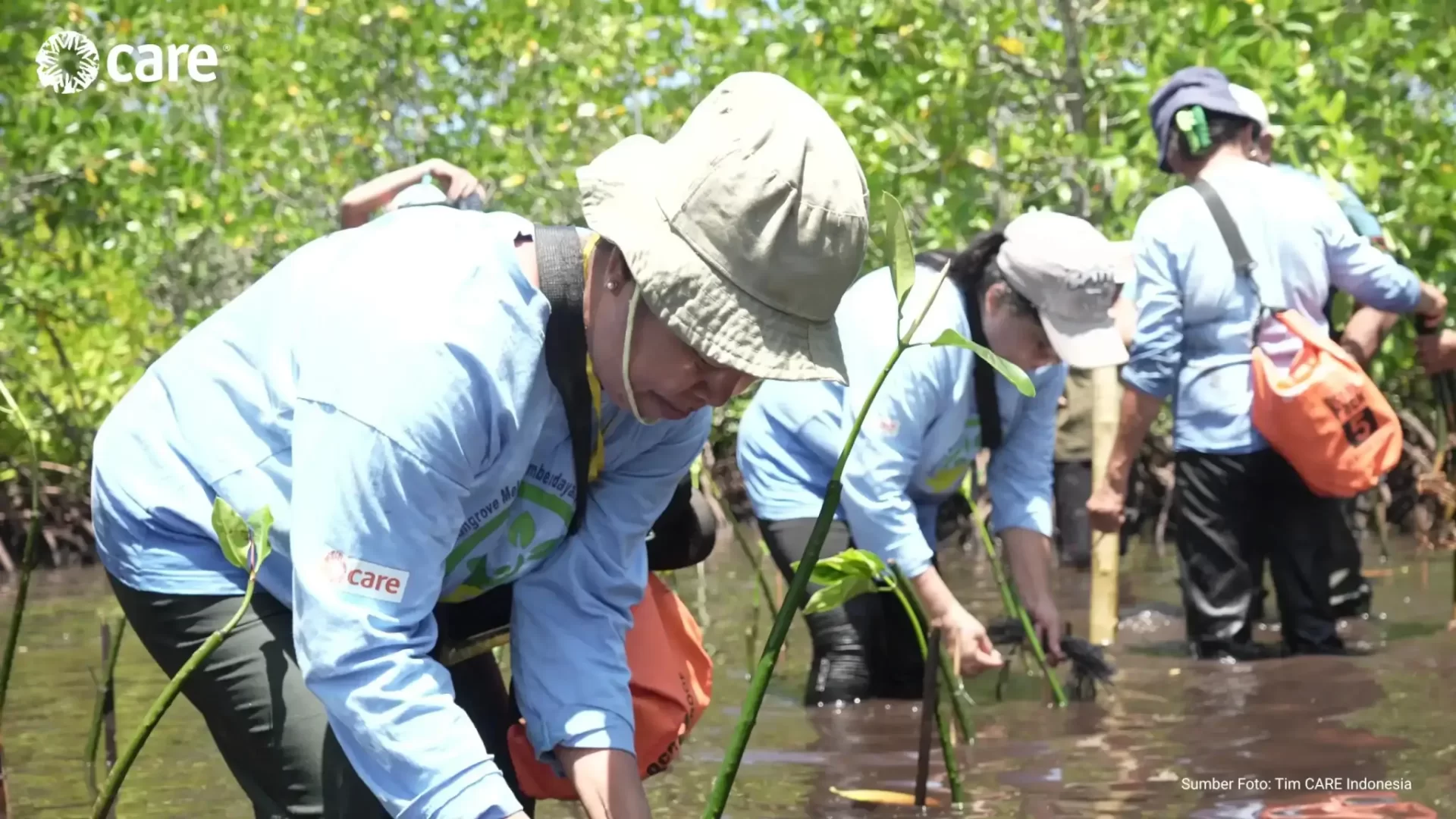A group of housewives from Pesaku Village, Sigi District, Central Sulawesi, have joined forces to bring change to themselves and their families. 25 women initiated this transformation by forming a group called Women’s Economic Business Group (KUEP) Mombine Sintuvu Maroso, aiming to enhance their skills and empower their households economically.
Fadlun, a member of KUEP Mombine Sintuvu Maroso, never imagined herself being able to speak in a public forum. She says that her courage to speak up came after joining the group. “In the past, I used to stay quiet during meetings, afraid I might say the wrong thing. But now I’m confident because I’ve gotten used to speaking. In our group meetings, we’re free to express our suggestions without blaming one another,” Fadlun said with a smile.
According to Fadlun, KUEP is not just a place for saving and lending money, but also a learning space for the women of Pesaku Village. Her husband’s support in joining the group has further motivated her to learn. “My husband supports me in joining KUEP. He said it’s a good place to learn, including financial management and understanding gender equality and equal access between men and women,” she added.
Similarly, Suprihati, also a member of KUEP Mombine Sintuvu Maroso, stated that the group provides solutions for family financial issues through interest-free loans. Some members have used this opportunity to fund small businesses. “As members, we really benefit from the savings and loan services in KUEP. Many of us use it as additional capital for our home-based businesses. Because it’s close to home, we don’t have to go far into town to withdraw money,” Suprihati explained.
According to her, the benefits that she and the other 24 members have received have sparked interest among other women in the village to join KUEP. However, she emphasized that membership selection must still follow agreed-upon rules. “I often share information about KUEP activities, such as the importance of gender equality at home and in the community, and financial management. I share this when chatting informally. From those conversations, many women have shown interest in becoming members,” she said.
Siti Utami, Facilitator Officer at the KARSA Institute, stated that the women and youth empowerment efforts in Sigi District are part of a collaboration between Yayasan CARE Peduli (YCP) and the KARSA Institute, supported by UN Women and funded by KOICA. The initiatives include economic empowerment, capacity building, and women’s participation at the village level. KUEP was established as a platform for empowerment and to promote gender equality awareness.
According to Utami, the progress of KUEP Mombine Sintuvu Maroso members is due to their mutual support and eagerness to learn. “KUEP meetings are held twice a month. Each time, the location changes based on mutual agreement. Members also agree to bring food to each meeting. These are initiatives by the members themselves, with no external prompting,” she explained.
She further shared that KUEP has a social fund intended to support members facing hardships. The fund is sourced from member contributions of IDR 5,000 at every meeting. “One of our members, Mrs. Nurhayati, recently lost her husband. She received IDR 200,000 in aid from the KUEP social fund,” Utami said.
Karmila, Chairperson of KUEP Mombine Sintuvu Maroso, explained that the social fund is an important element outlined in KUEP’s regulations and is mandatory for all members. “Even though it’s mandatory, the social fund is not burdensome because the contribution is small. Its benefits are significant and can help ease the burden of members experiencing misfortune,” Karmila said.
Karmila also mentioned that in June 2025, the group will hold an end-of-cycle meeting, which includes distributing the remaining savings to members, conducting a group evaluation, and planning for the next cycle. This includes plans to start a group business.
“Our plan is to conclude this six-month KUEP cycle. We’ll evaluate what needs improvement and discuss future plans. We also aim to start a business making cassava and banana chips. We chose this business because the raw materials are abundant and affordable in our area,” Karmila concluded.
Writer: Kukuh A. Tohari
Editor: Swiny Adestika





